
Unlike large State-owned Hisun, private company Simcere seems more flexible. It was determined to seize the chance to cooperate with foreign giants. In September, the Jiangsu-based biopharmaceutical company set up a joint venture with the world's second-largest drugmaker, MSD.
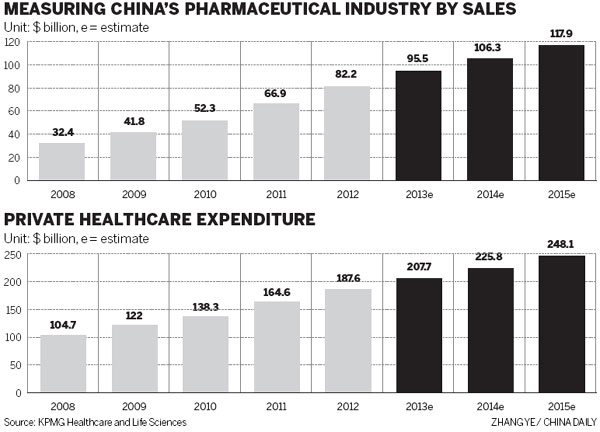
In the joint venture, concentrating on therapies for cardiovascular diseases, Simcere holds a 49 percent stake. It contributed two medicines specifically tailored to Chinese patients, while MSD provided four of its off-patent innovative drugs.
The new joint venture is focusing on the Chinese market currently without ruling out expansion in overseas markets in the future, said Ren Jinsheng, founder, chairman and chief executive officer of Simcere.
Analyst Xu believes global expansion will be realized in the near future. "MSD needs economic manufacturing and a reliable producer of its off-patents medicines so Simcere is a good choice," she added.
Simcere is one of the Chinese biopharmaceutical companies with strong research and development capabilities. Prior to joining hands with MSD, it had collaborated with US-based Bristol-Myers Squibb Co. The latest venture involves the co-development of a preclinical small molecule inhibitor, which is currently inactive in Bristol-Myers Squibb's pipeline. This research, if it succeeds, will help prevent cardiovascular disease.
Under the agreement, Simcere will receive exclusive rights to develop and commercialize products in China, while Bristol-Myers Squibb will retain exclusive rights in all other markets. However, Simcere will receive a percentage of profits from the commercialized products sold in overseas markets.
Before that, the two sides had an agreement on the co-development of an oncology compound that proved to be a success, according to Francis Cuss, senior vice-president of Bristol-Myers Squibb Research.
For domestic biological company Sino Biological Inc, the situation is unique. The Beijing-based company has its self-developed proteomics products, which are technologically advanced but lack brand recognition globally.
To build brand and enter the international market, it reached an overseas distribution and R&D agreement with Life Technologies Corp, a US-based global biotechnology major. All the products - more than 6,000 human derived proteins and antibodies made by the Chinese side - sold abroad will be under the joint brands of Sino Biological and Life Technologies. The two companies will also jointly develop new products, leveraging R&D synergies to introduce innovative products more quickly.
"Our China-made edge products are to be first sold in the United States, then expanded into Europe and South America," said Xie Liangzhi, president and CEO of Sino Biological, adding that he believes leveraging the multinational's platform to brand his young business in developed markets will be efficient and cost-saving.
"Business partnerships are like a marriage," said John Lechleiter, chairman, president and CEO of Ely Lilly & Co, explaining that the partners must have common goals and philosophies as well as mutual respect and mutual admiration. An adaptation period is also necessary.
At present, a large part of the collaborations between Chinese and foreign pharmaceutical companies are in the branded generics sector.
Since 2011, many innovative blockbuster drugs made by pharmaceutical giants have begun to come off-patent while the development of new ones has not been finalized. Insiders call it a patent cliff.
 HK's new cruise terminal receives luxury liner
HK's new cruise terminal receives luxury liner
 Future points to carbon trading
Future points to carbon trading
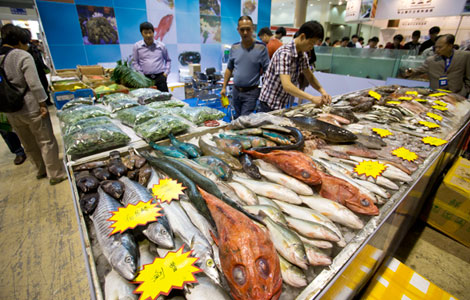 Seafood businesses flounder amid spending cut
Seafood businesses flounder amid spending cut
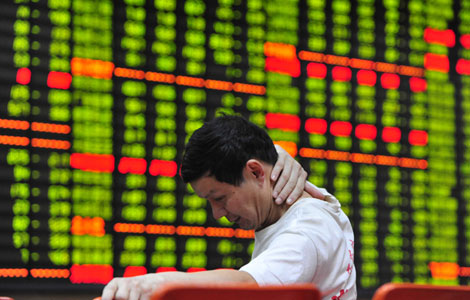 Equities slump amid slow-growth estimates
Equities slump amid slow-growth estimates
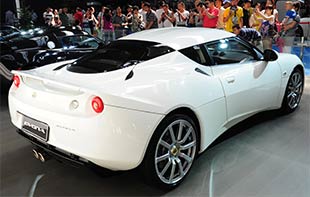 Auto show opens with much fanfare in Xi'an
Auto show opens with much fanfare in Xi'an
 Sunnylands summit fuels Chinese tourism interest
Sunnylands summit fuels Chinese tourism interest
 'Palace on wheels' on sale for $3.13m in Dubai
'Palace on wheels' on sale for $3.13m in Dubai
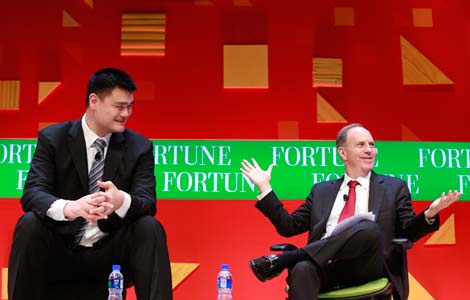 Fortune smiles on Chengdu as forum concludes
Fortune smiles on Chengdu as forum concludes